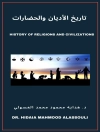In ‘English Conferences of Ernest Renan: Rome and Christianity. Marcus Aurelius, ‘ the renowned French philosopher and historian Ernest Renan delves into the intricate relationship between the Roman Empire and the rise of Christianity, focusing particularly on the philosophical underpinnings of Marcus Aurelius. Renan’s eloquent style intertwines rigorous scholarship with a poetic sensibility, as he crafts compelling narratives that elucidate the cultural and religious transformations during the pivotal period of late antiquity. His exploration of Aurelius not only sheds light on the Stoic principles that shaped Roman thoughts but also lays the groundwork for understanding the conflict and coexistence between paganism and nascent Christianity in a rapidly changing world. Ernest Renan (1823-1892) is celebrated for his profound insights into religion and history, influenced by his own complex relationship with faith and scholarship. As a product of the Enlightenment, Renan’s background as a philologist and his experiences in the post-revolutionary milieu of France informed his critical approach to religious texts and historical narratives. This scholarly inquiry into Marcus Aurelius and early Christianity reflects his lifelong quest for understanding the dynamics of faith, philosophy, and culture. ‘English Conferences of Ernest Renan: Rome and Christianity. Marcus Aurelius’ is an essential read for those intrigued by the foundations of Western thought and the historical interplay of religion and philosophy. Renan’s analytical depth coupled with his engaging prose offers readers a nuanced perspective that transcends mere historical recounting, ensuring that both scholars and general readers will find rich rewards in his illuminating discourse.
Tentang Penulis
Ernest Renan (1823–1892) was a French philosopher, historian, and writer, known for his influential works on religion, history, and philosophy which remained significant in scholarly circles for their intellectual depth and engagement with the themes of culture and faith. Renan is perhaps best remembered for his seminal work ‘Life of Jesus’ (‘Vie de Jésus’, 1863), which demythologized the figure of Jesus, placing him in a historical context and significantly impacting the study of religion and history. Renan’s oeuvre is characterized by a blend of rigorous scholarship and a literary style that sought to make complex ideas accessible to a broader audience. His ‘English Conferences of Ernest Renan: Rome and Christianity. Marcus Aurelius’ exemplifies his scholarly pursuit to understand the intersection of religious thought and historical development. In this work, Renan examines the evolution of Christianity and its relationship with Roman philosophical thought, particularly through the lens of the Stoic emperor, Marcus Aurelius. Renan’s literary style combined a keen analytical mind with a nuanced appreciation of the historical backdrop, making him a distinctive voice among nineteenth-century scholars. His contributions to the critique of religious narratives and the evolution of secular thought mark him as a pivotal figure in the development of modern historical and religious scholarship.




